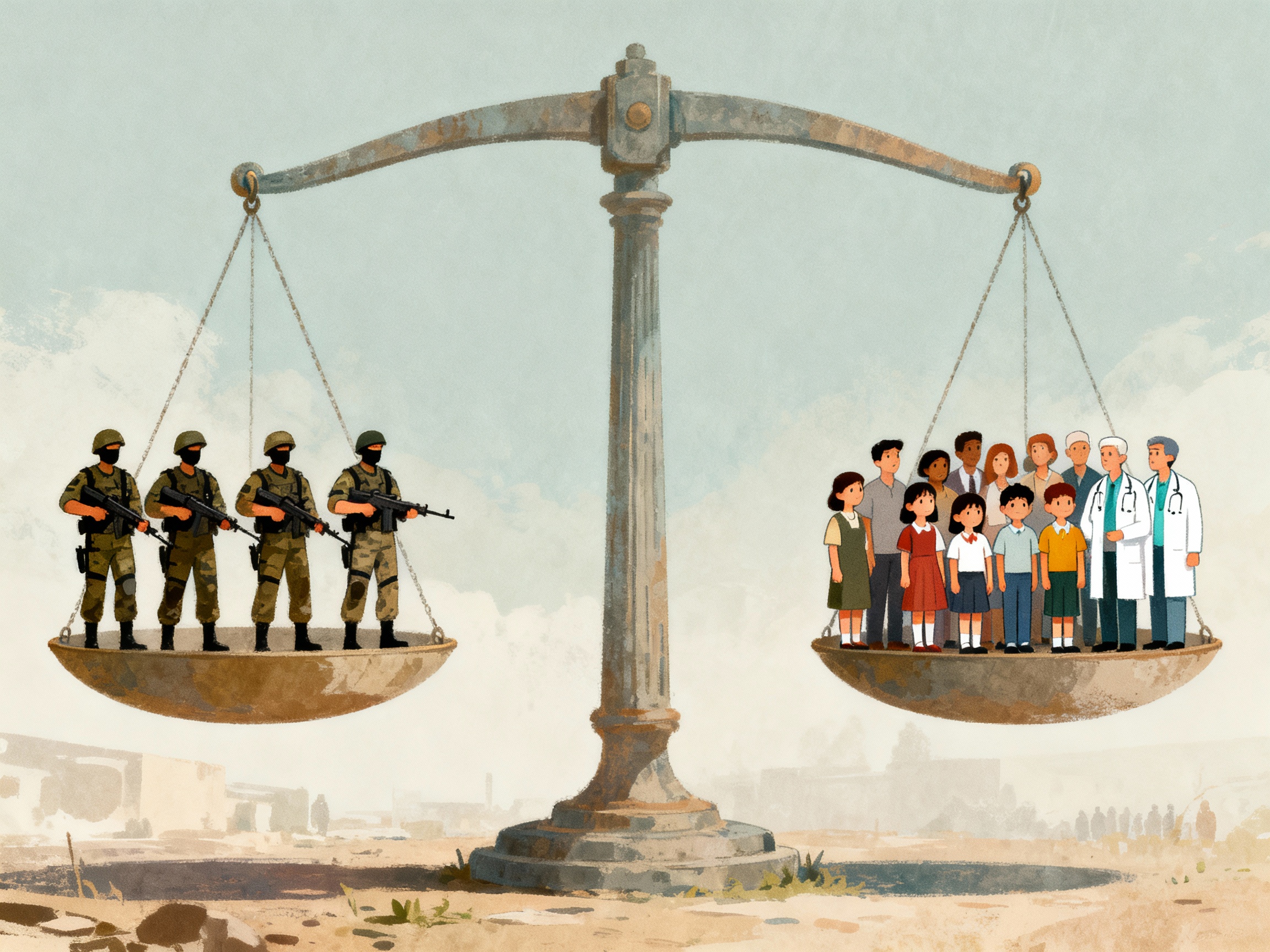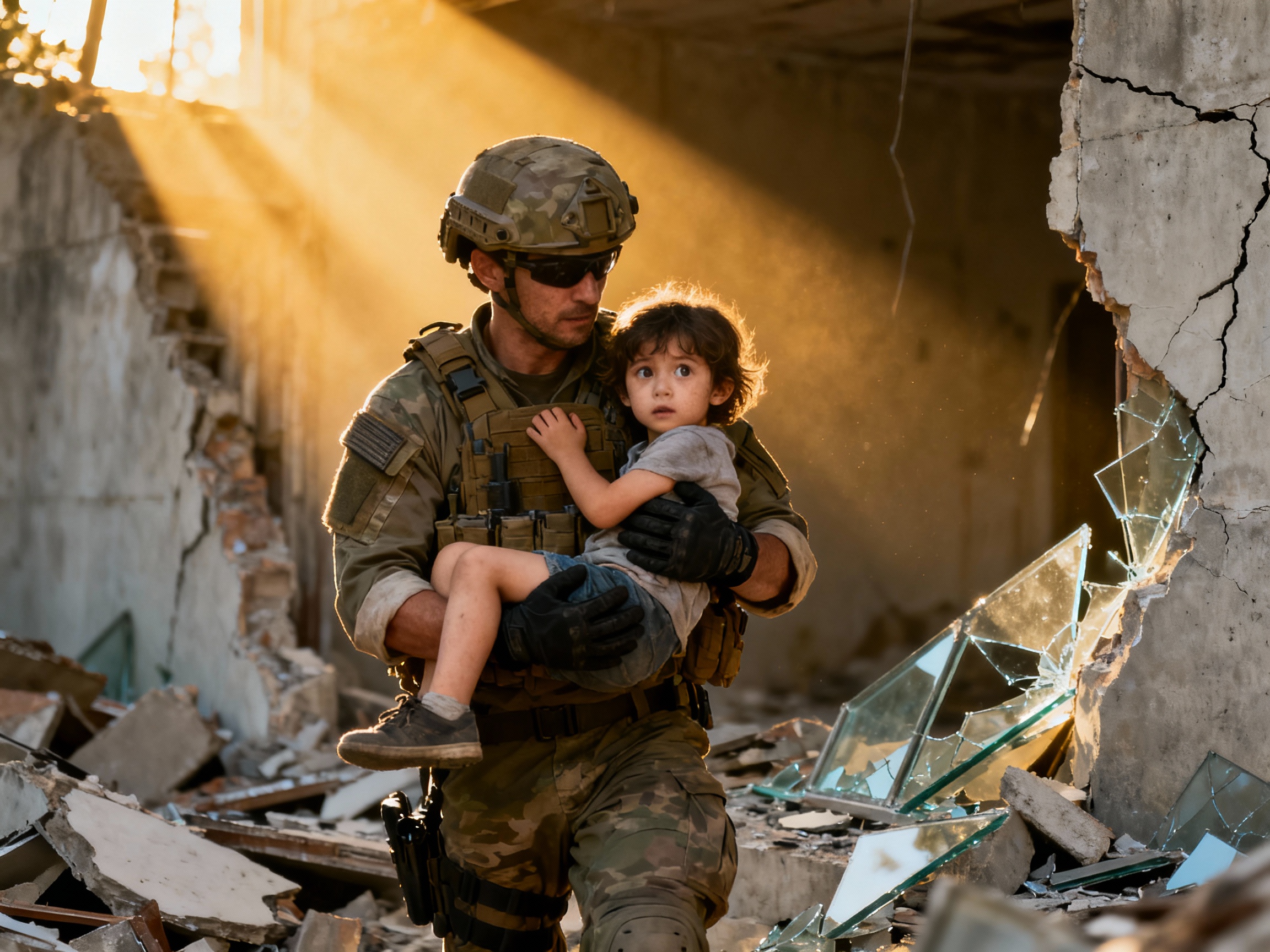
This text does not attempt to justify the monstrous attack of October 7. It was an act of inhuman violence, and the state has not only the right but also the obligation to protect its citizens. This text is about the price of such protection. About how easy it is, while fighting a monster, to start playing by its rules and become a monster yourself.
We are witnessing a classic tragedy: two narratives that do not meet each other. On one side is the story of rescuing hostages and destroying terrorists. On the other is the story of collective punishment, destruction, and humanitarian catastrophe. Both of these narratives exist simultaneously. And to deny either of them is to close one's eyes to the full picture.
The Lesson We Don't Want to Learn
There is a simple and tempting answer to brutality: to respond with such force that no one would ever want to repeat anything like it. This is the logic of deterrence. But it only works as long as your opponent has something to lose. When everything is already at stake, this logic breaks down.
What happens when force is applied without limits? It ceases to be a tool and becomes an end in itself. Not only are militants' tunnels destroyed, but also homes, hospitals, schools, the entire infrastructure of life. Not only terrorists die, but also tens of thousands of civilians who have nowhere to flee. Hunger, disease, and despair arise.
And here we face the main question: can the end justify such means? Even the most noble goal - saving your citizens?
The Trap of Collective Guilt
"But they supported Hamas themselves!" - this is a common argument. Yes, part of the Gaza population supported them. But many did not. And now, according to journalists on the ground, the number of those who curse Hamas for the calamities brought upon them is growing every day.
Punishing everyone for the actions of a few is a slippery slope. It means erasing the line between combatant and civilian. It means saying: "You were born on the wrong side of the fence, so your life and dignity are worth less." This logic fuels any terror. And when a state adopts it, it only confirms the extremists' claim that dialogue and rules are for the weak.
Is There an Alternative?
This is the most difficult question. What to do when an enemy has come to your land, captured your people, and hides among other civilians?
There is an alternative. It is more complex, slower, and requires incredible political courage. It is a path not of force, but of precision.
Priority #1 - Hostages. All resources are directed not at total destruction, but at targeted special operations, negotiations, any exchange to bring people back alive. Their lives are the main priority.
Targeted strikes, not carpet bombings. Use of special forces and precision weapons for targeted neutralization of leaders and militants, not the destruction of neighborhoods.
Unconditional humanitarian aid. Creating safe corridors and fully supplying the civilian population with water, food, and medicine. This is not a "handout to the enemy," but a demonstration that you are fighting terrorists, not the people.
International law and diplomacy. Shifting the conflict from the field of revenge to the field of law. Appealing to international courts, working with mediators, isolating Hamas, not an entire people.
This is not idealism. It is strategic foresight. Terror feeds on hatred and despair. A large-scale war that takes innocent lives produces this hatred and despair on an industrial scale. It is the best recruiter for those you are trying to destroy.

What is More Important: Being Right or Being Wise?
You can be right in your anger and wrong in your choice of reaction. You can win on the battlefield and lose the war of ideas. Violence can destroy a terrorist, but only justice can destroy the reason for their emergence.
The ultimate goal should not be to punish as many as possible, but to create conditions where terror has no ground. Where people have jobs, a future, and hope, not piles of ruins and children's graves. Otherwise, the cycle of violence will never end.
The temptation to respond blow for blow is great. But true strength lies not in destroying the enemy, but in winning while remaining human.

Leave a comment
Comment